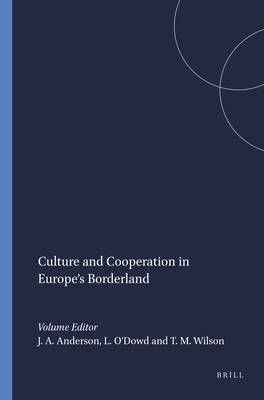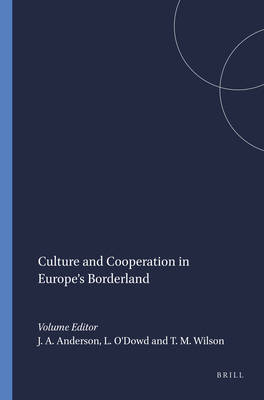
- Afhalen na 1 uur in een winkel met voorraad
- Gratis thuislevering in België vanaf € 30
- Ruim aanbod met 7 miljoen producten
- Afhalen na 1 uur in een winkel met voorraad
- Gratis thuislevering in België vanaf € 30
- Ruim aanbod met 7 miljoen producten
Zoeken
Culture and Cooperation in Europe's Borderland
€ 157,45
+ 314 punten
Omschrijving
Scholarly interest in the study of state borders and border regions is growing in Europe, keeping pace with the remarkable changes associated with the transformation of old borders and the creation of new ones in the European Union and beyond over the last fifteen years. Social scientists have increasingly examined cross-border co-operation as one way to understand the changes which affect European borderlands. Ironically, given the recent turn to issues of culture and identity in the social sciences, one of the most neglected aspects of the critical and comparative analysis of cross-border co-operation has been culture. Culture and Cooperation in Europe's Borderlands, the first collection of essays to provide multidisciplinary perspectives on these issues in European borderlands, presents three modes of analysis of culture and cross-border co-operation as a tentative way forward to redress this imbalance. These overlapping perspectives, on cultures of co-operation, co-operation about culture, and the impact of culture on forms of co-operation, are offered as possible strategies in the comparative social science of European borderlands.
The contributions to this collection examine some or all of the following:
- cross-border cooperation about culture, in such areas of culture as tradition, language use and rights, and education.
- cross-border cooperation and culture, i.e., in ways in which 'culture' enhances or hinders economic and political co-operation across state borders, as for example, through issues of national, regional and local identity, cultural practices, and ethnic relations.
- the culture of cooperation, i.e., ways in which co-operation across borders creates new cultural codes, political practices, organizational cultures and transnational social and political institutions.
The contributions to this collection examine some or all of the following:
- cross-border cooperation about culture, in such areas of culture as tradition, language use and rights, and education.
- cross-border cooperation and culture, i.e., in ways in which 'culture' enhances or hinders economic and political co-operation across state borders, as for example, through issues of national, regional and local identity, cultural practices, and ethnic relations.
- the culture of cooperation, i.e., ways in which co-operation across borders creates new cultural codes, political practices, organizational cultures and transnational social and political institutions.
Specificaties
Betrokkenen
- Uitgeverij:
Inhoud
- Aantal bladzijden:
- 252
- Taal:
- Engels
- Reeks:
- Reeksnummer:
- nr. 19
Eigenschappen
- Productcode (EAN):
- 9789042010857
- Verschijningsdatum:
- 1/01/2003
- Uitvoering:
- Hardcover
- Formaat:
- Genaaid
- Afmetingen:
- 155 mm x 230 mm
- Gewicht:
- 557 g

Alleen bij Standaard Boekhandel
+ 314 punten op je klantenkaart van Standaard Boekhandel
Beoordelingen
We publiceren alleen reviews die voldoen aan de voorwaarden voor reviews. Bekijk onze voorwaarden voor reviews.







